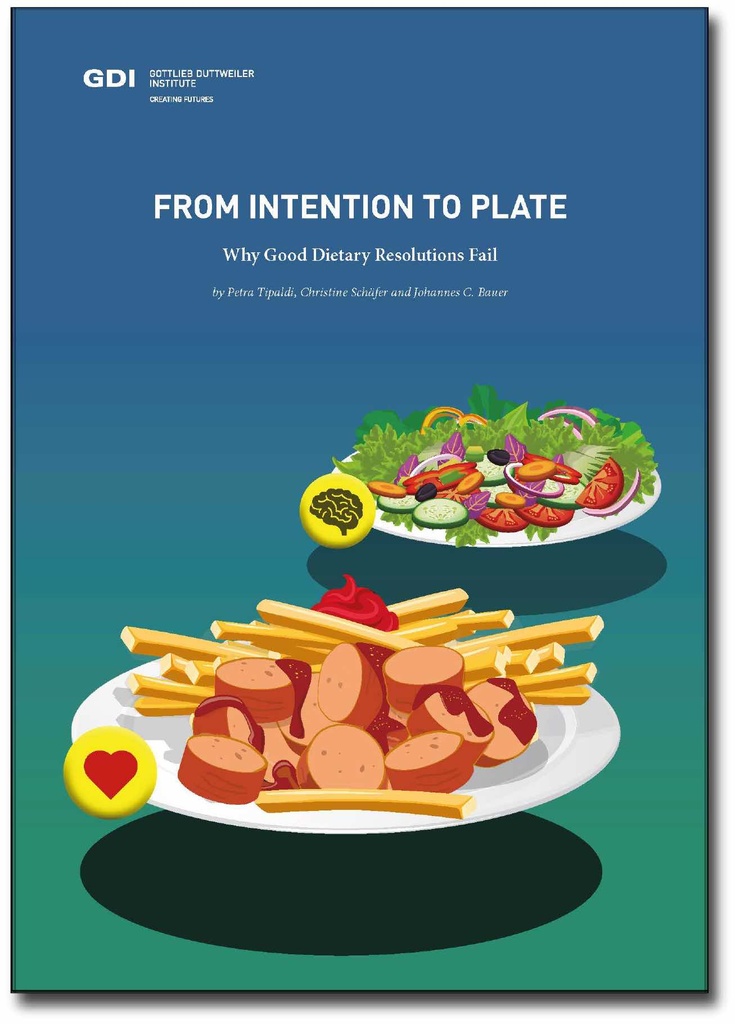From Intention to Plate
Why good dietary resolutions fail
Authors: Petra Tipaldi, Christine Schäfer and Johannes C. Bauer
GDI Study No. 55
Languages: English, German
2023
The Swiss population would like to eat more sustainably, but there is a clear gap between intention and realisation. This "intention-behaviour gap" - across all good nutritional resolutions - is between 29 and 45 percent. This means that between just under a third and almost half of people fail to achieve their intended goal, depending on the resolution. The gap is greatest for the resolutions to avoid packaging and only buy food that has short transport routes and takes animal welfare into account.
Consumers between need for knowledge and ability to influence
There is often a lack of knowledge to make an informed decision. This is shown in the trend paper "From resolution to plate". Many consumers do not seem to be aware of the impact of their diet on the environment and climate. The environmental impact of some behaviours - such as regional and seasonal eating - is overestimated by consumers. The impact of other behaviours, such as eating less meat, tends to be underestimated. Furthermore, the influence that consumers can have on the food system differs depending on the measure. They can easily avoid food waste, but it is difficult for consumers to change the packaging of a product.
Four options for action towards more sustainability in nutrition
In the Trend Paper, the GDI researchers, together with 31 food experts, identify four fields in which consumers and companies have good opportunities for action from the area of tension between the need for knowledge and the possibility of exerting influence:
- Easy Influence, ideal for beginners: Avoiding food waste, buying organic products and reducing dairy products, fish and meat as well as animal products in general;
- Smart Mastery, the field for professionals: taking animal welfare into account;
- Systemic Challenge, the challenge for die-hards: reducing product packaging and promoting the regionality of products;
- Collective Action, the playground for persistent nerds: advocating fair production conditions, the shortest possible transport routes and the purchase of seasonal foods and those with the lowest possible CO2 emissions.





